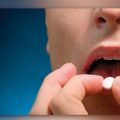Medicines And Your Diabetes
By Linda Bernstein, PharmD
Many people with diabetes take medicines for reasons other than diabetes. Therefore, it’s important for you to know if and how these medicines affect your blood glucose. For example, Prednisone, used for inflammation, and “water” pills used for high blood pressure or edema, can raise blood glucose.
Ups and Downs
If you’ve had a cortisone injection for arthritis pain, for example, be prepared for higher glucose levels. Other medicines may lower blood glucose. And to make matters more confusing, medicines such as Phenytoin, used for seizures, or Metoprolol, a beta-blocker used to lower blood pressure, can cause both a rise and drop in blood glucose. Beta-blockers can also mask symptoms of low blood glucose, or hypoglycemia, including a rapid heartbeat, so your body isn’t able to warn you that your blood glucose is low. This is particularly important if you take insulin or certain types
of diabetes pills that can cause hypoglycemia.
Over-the-Counter (OTC) Medicines and Supplements
Even OTC medicines can affect your blood glucose. For example, if you reach for a liquid medicine to treat a cough or a cold, it may contain carbohydrates in the form of sugar. Cold remedies that contain Phenylephrine may raise blood glucose levels, too. Ask your pharmacist about sugar-free products and cold medicines that won’t affect your blood glucose. Herbals and dietary supplements can also affect blood glucose. For example, taking Niacin, a B vitamin that’s used to treat high cholesterol, may raise blood glucose when taken in high doses.
What About Alcohol?
Alcohol generally lowers blood glucose and can result in some diabetes medicines making you feel flush. Symptoms of having had too much to drink can also be confused with symptoms of low blood glucose.













